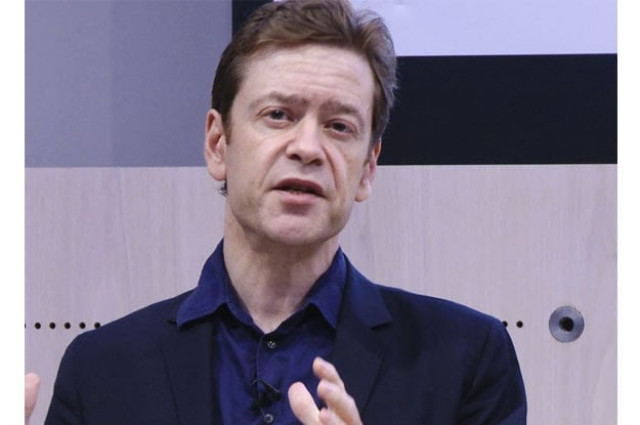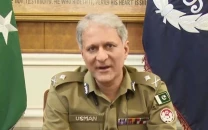In conversation: Decline of the Left in global politics
David Priestland talks about re-emergence of debate on growing inequality

Historian and author David Priestland. PHOTO: FACEBOOK
David Priestland, a teacher of modern history at Oxford University, says there was a re-emergence of debate on growing inequality in the wake of the 2008 economic crisis which has a sizeable global population, the youth in particular, demanding change. The collapse of the Soviet Union was seen as a confirmation of the failure of an economic system that swung left. Since then, left ideology and various leftist bodies (trade unions for example) appear to have been in decline around the world.
As a graduate student, Priestland had spent time at the Moscow University in Russia during the Gorbachev era, which he describes as “the dying days of the Soviet Union”. This ended up defining contemporary politics, he says.
Relations between the Soviet Union and the West, called East-West relations, were tense at this point, he says, especially in Britain. Historians call it the second Cold War. It was during Reagan’s regime, a tense period, that the fear of nuclear warfare was all too real, he says.
For Priestland, the lure of the Soviet Union had come from the mystery it was surrounded in. It was this aura of mystery which prompted him to conduct his research there. “I wanted to know what Russia was about and what was going on in the Soviet Union. There was a lot of propaganda around it. That’s how I became interested.”
Russian is a difficult language for the English to understand, he says. He had started learning it during his time researching there, and says that he had somehow managed. “It’s still a European language so the vocabulary is similar,” he says. Priestland says he never had such luck in learning Chinese.
In the course of his research, Preistland had spent a significant time trying to understand leftist ideologies by researching socialism/communism in the former Soviet Union and China.
“In the industrialised world during the ’70s, there was a crisis of a particular type. Heavy old industrial economy and the oil crisis had meant that the old system which had allowed nation states to exercise quite a lot of power over the economy and had allowed nation states to give quite a lot of privileges and empower trade unions and labour had declined,” he says. This was after the Second World War when the system was in flux and neoliberalism and market liberalism were considered viable solutions to the crisis, he says.
Priestland talks about the subsequent rise of mercantile capitalism and how it empowered the middle class, traders and industrialists. This led to a decline of trade unions and snatched political influence away from the working class, he says. “And so we find ourselves in the midst of a growing discussion about the perils of accumulation of wealth by the few.”
The financial crisis of 2008 was important. “It made it clear to a generation of young people that they would not have the same prospects my generation had, for example. This has led to an emergence of strong and more radical ideas.”
In contemporary western politics, the rising trend can be observed in the youth bulge behind left-leaning politicians like Bernie Sanders in the US and Jeremy Corbyn in the UK.
“My students are more left leaning than my generation was. When I was young, during the Reagan period, capitalism was said to have empowered a large growing middle class who believed that the trade unions had had it too easy for too long.” The collapse of the economy in 2008 was proof that the system was just not going to work.
This radicalisation, he says, has also helped garner support for right-wing parties. It can be seen in the rise of leaders like Donald Trump and political parties like the UKIP and the anti-EU movement in the UK.
“There is a polarisation of politics.” It is in this rising polarisation of politics that Priestland thinks the right is gaining more momentum and talking more about nationalist aims and is anti-globalisation in its essence. “In South Asia, it is again the anti-globalisation right, religious parties and the BJP, which is a bit ambivalent towards globalisation…but there are anti-globalisation elements rising to power.”
Priestland has discussed the question of whether the left will rise again in his book Merchant, Soldier, Sage: A New History of Power.
“The crisis in 1929 and World War II created a generation that believed left wing solutions were the right solutions. The next change came in the 1970s and ’80s. The question now is, he says, is 2008 crisis similar?”
Published in The Express Tribune, April 1st, 2016.


















COMMENTS
Comments are moderated and generally will be posted if they are on-topic and not abusive.
For more information, please see our Comments FAQ